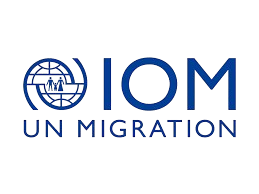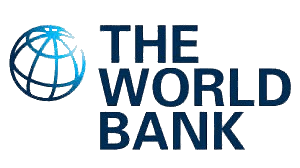Throughout my career and personal life, the principle of sustainability has been a guiding light. For me, sustainability goes beyond buzzwords and corporate jargon. It is a mindset and a commitment to do the best we can through living and working in ways that safeguard our planet for future generations.
In my early years as a transport consultant, I saw firsthand the impacts of unsustainable practices on both the environment and communities. I remember a project in Central Asia where industrial pollution had contaminated local water sources. It was a stark wake-up call about the need for sustainable practices to protect both the environment and human health.
Sustainability is a multifaceted concept, encompassing not just environmental protection but also social justice and economic viability. It requires that we meet our present needs without compromising the ability of future generations to meet their own needs. It is a complex paradigm that includes thresholds and tipping points.
In understanding this concept, I invite you to review the history of the Sustainability Context Group and the Global Initiative for Sustainability Ratings (GISR). The Sustainability Context Principle advocates for ecological and social sustainability thresholds at the entity level, and in many ways, represents the complexity of sustainability.

The ambitiousness of GISR and its inclusion of the Sustainability Context Principle may have probably and eventually led to its downfall. The demand for more conservative ratings like ESG and impact ratings hindered the GISR, leading to its quiet dissolution. This process, known as discursive erasure, highlighted the struggles of a field unwilling to adopt more ambitious measures due to market constraints. This is all the power dynamic of ESG ratings. Too little, too late? Or good enough because better than nothing? By being to ambitious, other framework will never see the light of the day.
But we are now witnessing the effects of such a short-sighted approach. The growing realization that these restrictive and discrete approach for ratings fail to address the depth of the sustainability crises has led to a crisis of confidence. I have always criticized ESG at the portfolio level. Because there is no sustainability is there is no real impact at the project level. And now there is an increasing recognition of the need for broader and more inclusive sustainability standards. This is crucial if we are to prevent the transgression of ecological and social tipping points that risk shifting our life-support systems into unpredictable, hostile states.
There is so much to be done. On enterprise sustainability, the current challenges of climate change, conflict, and COVID-19 highlight the volatility of supply chains and the urgency of action. This is not just about environmental protection but also about economic stability and opportunity. Enterprises need to identify meaningful goals and implement measures for self-evaluation. They need to think about best practices and issues that society cares about and be transparent about these practices.
As consumers become more knowledgeable and critical about sourcing and ingredients, their preferences are reshaping markets. The proliferation of information through the internet and technology means consumers can verify claims about the products they purchase. Misconduct, particularly in areas related to environmental, social, and governance issues, carries a cost. It may not be immediate, but ultimately, irresponsible behavior leads to consumer loss.
Lastly, sustainable enterprises require both management and technology. Both sectors need to understand the repercussions of their actions. This was evidenced during the COVID-19 pandemic where lockdown represented management, vaccines represented technology, and behavioral changes signified further management.
In practical terms, this combination of management and technology can make a significant difference. For instance, in Bangladesh, where water quality is poor, the conversion of rice husks into graphene-like carbon for water filtering can create drinkable water in one pass. This requires not only technological know-how but also corporate investment and government funding for research and development.
Strong leadership is needed to set aspirational targets and ensure everyone is working towards achieving them. Sustainability is a complex issue that involves balancing the needs of the environment, society, and the economy, and it calls for the combined efforts of all sectors to tackle it effectively.
As the ‘net zero’ trend gains momentum globally, with numerous countries and organizations adopting it, the carbon offset market is seeing a significant surge. A plethora of businesses and governments often find it more cost-effective and convenient to purchase these ‘offsets’ rather than curbing or eradicating emissions from their own activities.
This might involve an airline financing tree planting projects to balance out the emissions from your flight or an e-commerce company allocating part of your payment towards advancing carbon dioxide elimination technologies. Ideally, offsets should allow organizations to economize while also protecting the environment.
However, a critical issue arises here: a significant number of carbon offsets currently available in the market claim to reduce or remove a certain amount of carbon, but these assertions are not always backed by solid science or data. In fact, some may inadvertently exacerbate the climate change crisis.
So, what does that mean? To me, it means that at the heart of sustainability lies the principle of trust, and balance. Environmental scientists tell us about the delicate equilibrium that exists in nature. Disturbances to this balance, such as excessive resource extraction or pollution, can lead to far-reaching impacts.
I had the privilege to work on various sustainability projects. One of the most rewarding was the development of a sustainable forestry management program. I have learned so much about the capacity to manage and protect forests sustainably. This not only preserved the biodiversity of the regions but also supported local livelihoods, thus highlighting the intersection of environmental, social, and economic sustainability.
Sustainability is also about resilience and adaptation. This is particularly relevant in the face of climate change, where the ability of communities, ecosystems, and economies to adapt to changing conditions is paramount. I’ve seen this firsthand in my work in coastal areas of Southeast Asia, as well as in the Pacific Islands, where rising sea levels threaten communities. By promoting sustainable practices such as mangrove restoration and adaptive infrastructure, we are helping these communities become more resilient to climate change.
In a world that sometimes feels disconnected from the natural environment, I believe hospitality can play a transformative role in fostering a deeper connection to nature. Sustainability must be the cornerstone of this vision, ensuring that our experiences are not only enriching but also respectful of the ecosystems that make them possible.
My latest venture, Novi Glamping, is an embodiment of this philosophy. Combining sophisticated design with off-grid experiences, Novi Glamping offers guests the chance to unwind in nature while minimizing their environmental footprint. Each element of the project is meticulously crafted to align with sustainable principles—using renewable energy, eco-friendly materials, and preserving the surrounding landscape.
As we reimagine sustainability and hospitality, the goal is clear: to create spaces that inspire reconnection with nature while addressing the pressing challenges of our time, such as climate change and resource conservation. By integrating sustainability into every aspect of our work, we can redefine what it means to escape and recharge, ensuring these moments are as meaningful for our guests as they are for the planet.
From my own experiences, I have learned that sustainability is a journey, not a destination. It requires continuous learning, adaptation, and commitment. But it is a journey well worth taking, for the sake of our planet and future generations.
Romain Pison has worked with leading organizations such as





















